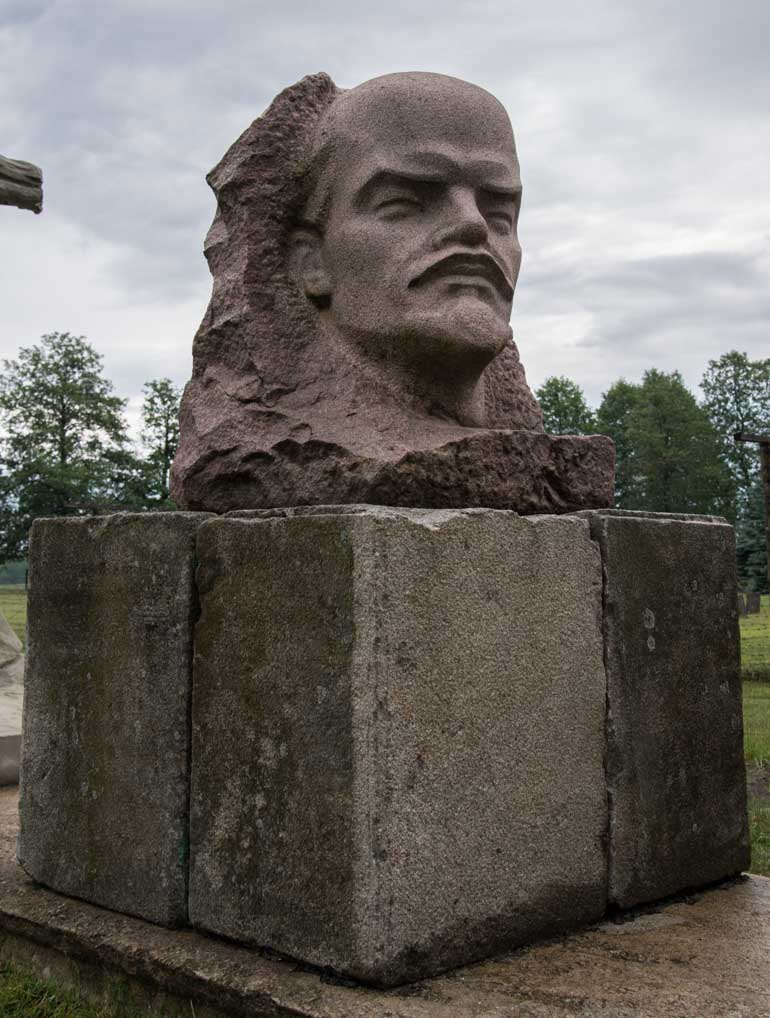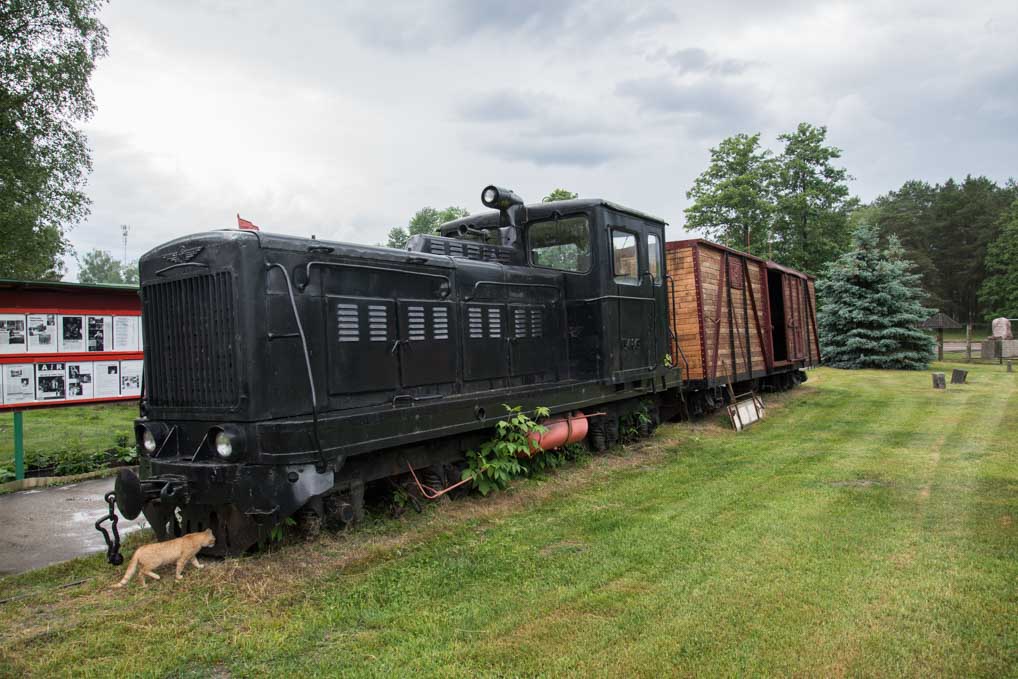Today we continued on our journey to Vilnius. As we moved towards the far east of Poland the landscape changed once again. Now it was nearly continuous forest. This part of Poland, together with Southern Lithuania and western Belorussia are home to some of the last parts of the vast forest which once covered the whole of Europe. It is called Primeval Forest, which essentially means it has been virtually undisturbed by humans.
Verges and clearings were filled with great swathes of violet wild lupins, some of which Sarah now has in her ever evolving wild flower display in Basil’s cab. Hymer, Basil’s manufacturer, have thoughtfully including vast cup holders for the driver and passenger, but they are so big they can take a medium sized vase, so we are always accompanied by wild flowers as we travel. We also saw warning signs for Elk.
As we crossed the non-existent border into Lithuania the forest scenery remained unaltered but the housing changed markedly. Now there were far more wooden houses and the corrugated iron/corrugated asbestos roofs, which we had left behind in Bulgaria were back on the scene. There were plenty of abandoned houses in the area we passed through and some of the others looked distinctly dilapidated. We were somewhat surprised because Lithuania is a member of the Eurozone and so we assumed was economically stronger than Poland. It is astonishing how dramatically housing standards change in a matter of a few miles simply because you cross a border.
Our plans were thrown slightly by the fact that SatNav informed us that Lithuania is one hour ahead of Poland and two ahead of Britain, meaning that our aim to arrive at our interim destination was going to be mid, rather than early afternoon.
The idea was to arrive at a place called Grutas Park, make an afternoon visit and then either stay overnight in the car park or decamp to a nearby campsite. It soon became obvious that with the hour change we were not going to arrive at Grutas Park until 4pm and so we started to look for alternative overnight stops and then visit Grutas Park in the morning before continuing to Vilnius.
So I located a wildcamping spot near Grutas Park. Unfortunately when we arrived, despite having the GPS co-ordinates we couldn’t find the “quiet picnic spot in the woods”. I must have written it down incorrectly. So we pushed on to Grutas Park thinking we would stay overnight on the car park.

Grutas Park has a lovely lakeside setting
On arrival at Grutas Park we were disappointed to see that no dogs were allowed in despite it being an open air park. Let me explain. Grutas Park is the place in Lithuania where many of the communist era sculptures have ended up. They have made it look like a Gulag camp and it is full of information about how Lithuania was brutally suppressed by the Soviet Union. We were clearly not going to be able to visit together, so I went and scouted it out alone.

Good old Vladimir Illyich Ulyanov (Lenin)
There was a section before the entrance booth with a few monumental busts of Lenin and some unknown to me (and I suspect to all non-Lithuanians) Lithuanian communist officials and a railway carriage of the sort apparently used to transport people to the Gulag. The lady at the reception window did not speak any English and didn’t offer any other languages. So I was not able to ascertain anything about the park or whether we could stay in the car park.

Unknown, to me, Lithuanian Communist Official. Note the Gulag watchtower in the background.

Train and carriage apparently used to transport political prisoners to the Gulag.
After a further discussion with Sarah we decided to abandon the Grutas Park plan and to try our third overnight option. It was only 5 miles away at Camping Druskininky (54.008469, 23.977628). It is a plain but clean site in a wooded area on the edge of the town of Druskininky, a spa town. At €17.30 it is a little steep for what it is. Wifi is only available near the bar. It is also our first encounter this trip with the dreaded midge. I suspect we will be tormented by these little chaps certainly until we reach northern Norway and maybe beyond when we stray from the sea.
*Tonight’s post title is inspired by Soft Cell’s “Say Hello, Wave Goodbye” from one of my favourite early 80’s albums, Non-stop Erotic Cabaret.
